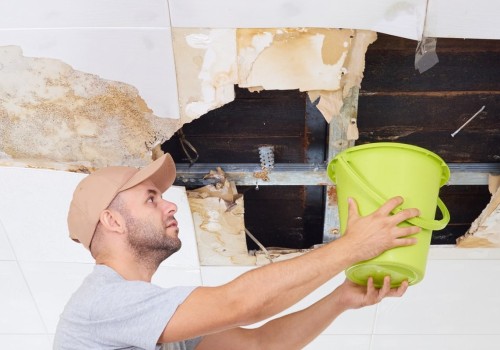The Ultimate Guide to Water Damage Restoration in Wilmington NC
Introduction:
Water damage can be a devastating experience for homeowners in Wilmington, North Carolina. From severe storms and hurricanes to burst pipes and plumbing leaks, water can quickly wreak havoc on your property. Knowing how to respond promptly and efficiently is crucial in minimizing the long-term effects of water damage. This comprehensive guide aims to provide residents of Wilmington, NC, with the essential information needed for effective Water Damage Restoration Wilmington NC.
- Understanding the Causes of Water Damage:
Water damage can stem from various sources, including natural disasters, faulty plumbing, appliance malfunctions, or sewer backups. It is essential to identify the cause to determine the appropriate restoration approach. Regular maintenance and vigilance can help prevent water damage from occurring in the first place.
- Immediate Steps to Take:
In the event of water damage, it is crucial to take immediate action to prevent further destruction. Start by turning off the water source if possible, and ensure your safety by shutting off electrical power to affected areas. Remove valuable items and furniture from the waterlogged area to prevent additional damage.
- Safety Precautions:
Water damage can pose significant risks to your health and safety. Contaminated water from flooding or sewage backups can carry harmful bacteria and pathogens. It is vital to wear protective gear such as gloves, masks, and rubber boots when dealing with water damage. If the damage is extensive or involves black water (sewage), it is advisable to seek professional assistance.
- Assessing the Damage:
Once the immediate safety concerns are addressed, conduct a thorough assessment of the extent of the water damage. Document the affected areas, take photographs, and make a detailed inventory of damaged items. This information will be helpful when filing insurance claims and during the restoration process.
- Calling Professionals:
Water damage restoration is a complex and time-sensitive process that requires expertise and specialized equipment. Contacting a professional water damage restoration company in Wilmington, NC, is highly recommended. These professionals have the necessary knowledge and experience to handle water extraction, drying, dehumidification, mold remediation, and structural repairs.
- Water Extraction and Drying:
The first step in the restoration process involves removing excess water from your property. Powerful pumps and vacuums are used to extract water from floors, carpets, and other affected areas. After water extraction, industrial-grade dehumidifiers and air movers are employed to facilitate drying. This step helps prevent mold growth and further damage to the structure.
- Mold Remediation:
One of the most significant risks associated with water damage is the growth of mold. Mold can develop within 24 to 48 hours in a moist environment. Professional restoration companies in Wilmington, NC, employ mold remediation experts who will assess the extent of mold growth, remove affected materials, and implement thorough cleaning and sanitization processes.
- Structural Repairs and Restoration:
Once the affected areas are dry and mold-free, it’s essential to address any structural damage caused by water. This may involve repairing or replacing damaged drywall, flooring, insulation, or even structural components. Skilled restoration professionals will ensure that the repairs are done efficiently, restoring your property to its pre-damage condition.
- Dealing with Insurance Claims:
Water damage restoration can be a costly endeavor, but many homeowners’ insurance policies cover water damage. Contact your insurance provider as soon as possible to report the damage and initiate the claims process. Keep thorough documentation of the damage, including photographs, receipts, and communication with the restoration company, to support your claim.
- Preventative Measures:
Once your property is restored, it’s crucial to take steps to prevent future water damage. Regular maintenance of plumbing systems, gutters, and downspouts can help prevent leaks and water buildup. Installing sump pumps, backflow preventers, and water leak detection systems can also provide added protection.
Conclusion:
Water damage restoration is a complex process that requires prompt action and professional expertise. By understanding the causes, taking immediate steps, and contacting reputable restoration professionals in Wilmington, NC, homeowners can mitigate the damage and restore their properties efficiently. Remember to prioritize safety and follow the necessary precautions throughout the restoration process. With the information provided in this guide, residents of Wilmington, NC, can be better prepared to tackle water damage and protect their homes.



